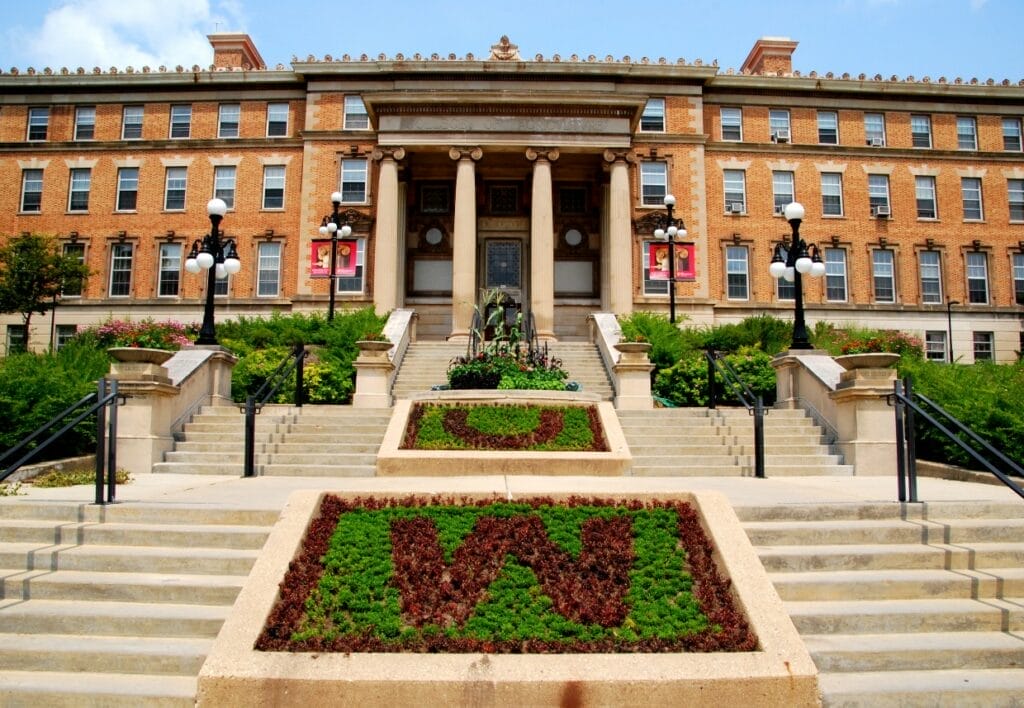Program that includes higher-income Native American families is result of virtue-signaling
News comes of unexpected wrinkles in the University of Wisconsin-Madison’s plan to prove its virtue with free rides for kids of Native American ancestry.

A recent handwringing story in the leftist Wisconsin Examiner told of a first-year UW student from the Stockbridge-Munsee Mohican reservation who, despite her ancestry, doesn’t qualify for the school’s Tribal Education Promise Program.
That program’s quite a deal: scholarships and grants to cover the full cost of an undergraduate degree, or to cover all tuition and fees for a law or medical degree.
And the unfortunate kid doesn’t get it because, while many of her ancestors were Native Americans, not enough of her Mohican and Menominee ancestry is from any one particular tribe to meet tribal rules for enrolled membership. So no debt-free degree deal for her, apparently.
The student and her family are blameless — one wishes her well in her studies — and the Mohican and the Menominee are free to say who’s a member or not. Those are private issues.
Public policy enters when it’s the state, through its university, doing something that American law and most Wisconsinites don’t want: passing out favors on the basis of race.
The law does not allow Wisconsin to give anyone a free ride based on racial identity such as being Native American. So instead, UW-Madison is basing the cost waiver on membership in one of 11 federally recognized Wisconsin tribes.
Most would say it amounts to pretty much the same thing, a distinction without a difference. But there’s a legal reason they’re doing the end-around.
“If this tuition waiver were not based on tribal membership, it would be race-based, and it would suffer a defeat at the hands of a constitutional challenge based on equal protection,” Richard Monette, who teaches Native American law at UW-Madison, told the Examiner.
In other words, the university must pretend that it’s giving a free college deal to members of some political entities — as if it were doing free MDs for anyone from Langlade County, for instance.
But you can move to Langlade County without an exam of your family tree.
More to the point, you’re excluded from such membership and the UW program if your ancestors were Hmong. Or Mexican. Or Dutch, Yoruba or Gujarati.
Or if you’re an enrolled member of the Lakota: That Minnesota tribe isn’t on UW’s list.
And you don’t not get the deal if your parents are high-income. To the contrary: UW says it will cover any gap between need-based financial aid and the full cost of college, “regardless of family income.”
Not the needy
This is not about needy students. UW already promises to cover the full cost of four years for students from families needy enough to qualify for a Pell Grant, and it already promises to cover four years of tuition for kids from Wisconsin families making less than $65,000 a year. The needy are splendidly covered.
The tribal deal, then, is specifically an extra gift to members of political entities you can join only if you have a particular kind of ancestors, nudge-nudge, wink-wink.
UW hastens to add that it’s not using taxpayer money but, instead, “institutional resources” such as donations and, presumably, its $3.8 billion endowment.
But it is a state agency nonetheless, and it realizes that distributing favors based on ancestry would violate the law.
Yet the state school is doing just that. Why?
‘Ancestral home’
Chancellor Jennifer Mnookin, announcing it in December, said it “felt like the right thing to do.” She called it a way “to recognize that we do sit on the ancestral home of the Ho-Chunk Nation.”
That is, it’s a dollarized version of those “land acknowledgments” at the start of academic events that reel off a list of the most recent tribes to use a tract of land (though rarely mentioned are whatever tribes they defeated to take possession). They’re meant as a kind of apology for America’s existence, a way of hinting that the United States doesn’t belong here.
But if Wisconsin is the “ancestral home” of the Ho-Chunk, it still is the home of the Ho-Chunk: Tribe members were granted homesteads in the 1870s. Today they, and members of other tribes, possess Wisconsin in the exact same sense that any other American citizen does. That’s what “nation of immigrants” means.
Look, if a tribe wants to offer scholarships to its members, that’s no more anyone else’s business than when the Sons of Norway do it.
But this deal isn’t from a tribe. It’s from the state’s own flagship university, and it means that university is preening for progressive applause in a racially exclusionary way that has no place in an America that repented of racism. It ought to stop.
Patrick McIlheran is the Director of Policy at the Badger Institute. Permission to reprint is granted as long as the author and Badger Institute are properly cited.
Submit a comment
"*" indicates required fields




